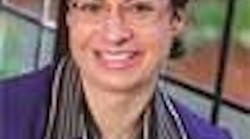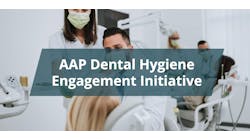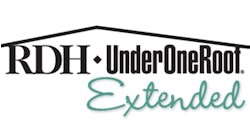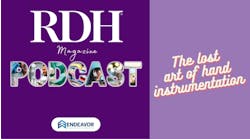By Ann-Marie C. DePalma, RDH, MEd, FAADH
An elderly family member is in a long-term nursing home environment. The facility staff is caring and compassionate, but lacks knowledge about oral health. Your family member has a history of periodontal disease and emphysema. Lung infections are commonplace and never seem to fully resolve. You are aware of the recent research as to the correlation between oral and systemic health and wonder if the recurring lung infections can be related to periodontal bacteria. But what do you do to educate the facility staff about the issue without creating a “problem”?
Angie Stone, RDH, BS, has the answers for you in her program, “A Practical Approach to Improving the Oral Health of Dependent Elders.” Angie invites attendees to learn how to apply simple, advanced treatment modalities to a patient population in need of services, and to assist the nursing staff of long-term care facilities in the implementation of these procedures. But this is not your typical “brush and floss” course! Angie encourages participants to go beyond brushing and flossing to benefit this underserved population group.
Course objectives for “Improving Oral Health” include:
- Describing the status of oral health in the dependent adult population
- Discussing the educational level, regarding oral health, of those responsible for the care of the dependent adult population
- Determining the role the dental hygiene profession can play in the care and improvement of the dependent adult population
- Developing ways to implement an in-service training session for facilities housing the dependent adult population
Participants in the program will discuss a variety of issues involving the oral care of the dependent adult population, including:
- The lack of oral care for dependent adults as a result of lack of insurance, providers, and transportation
- The quality of life issues centered around oral health
- The profiles of current and future residential facility residents
- Oral health education or lack thereof for primary caregivers, including nurses and nursing assistants
- The abilities of dental hygiene professionals to provide care to residential residents
- Establishing a yearly in-service program for facilities
Angie feels that this program is an excellent resource for hygienists who are interested in assisting the elderly population in general. Much of the information she presents can be easily and directly transferred to patients in any clinical setting. In addition, Angie encourages entire dental teams to attend since she reinforces the knowledge that there are ways beyond brushing and flossing that can help maintain the oral health of any elderly patient.
Additionally, Angie has teamed up with Shirley Gutkowski, RDH, BSDH, to provide an online webinar titled “Adopt a Nursing Home.” Angie and Shirley are working with Pink Tooth (www.pinktooth.net) to educate hygienists on the “who, what, where, when, and whys” of developing an annual in-service training for nursing homes in a dental professional’s area. These programs have been very successful, and participants have been enthusiastic about the efforts.
Angie has seen firsthand the effects poor oral hygiene can have on dependent patients. Her mother-in-law spent the last year of her life in a nursing facility, suffering from lung conditions. Angie feels that if she had received oral care, her end-of-life experiences would have been substantially improved. This experience led Angie to evaluate the dental situation of nursing home residents in general, and she was appalled at the lack of care she observed. She became motivated to educate others about the issue, both within and beyond dental hygiene. As a clinical hygienist in Wisconsin, Angie has the ability to provide services to patients in long-term care facilities and to receive direct reimbursement, a privilege many other state practice acts do not afford.
Angie’s presentation is given in PowerPoint with handouts. She has been described as an energetic and enthusiastic speaker. Her program comes from both her head and her heart, which can sometimes appear dramatic. However, this program is meant to provide an emotional lift to motivate others to serve an underserved and needy population.
Angie received her associate’s degree in dental hygiene from Madison Area Technical College and a bachelor’s degree in psychology from Upper Iowa University. One of the courses she fared well in was public speaking — never did she realize that the excellent grade was trying to tell her something! She enjoys presenting to various groups and loves to present topics that are not in the mainstream of thinking to get participants’ minds churning. She loves the heightened energy in rooms when she presents.
Angie is passionate about her family (husband, daughter, and son) and dental hygiene. Her brother often comments that she is a dental nerd and can’t understand how anyone can talk about teeth as much as she does and love it! She is a member of ADHA and acknowledges that there are great professional leaders who are pursuing the development of the profession. If she were not a hygienist, she would be a professional organizer, much like “Mission Organization” on HGTV!
Angie has recently taken on a new challenge and role as a hygiene consultant for McKenzie Management. Angie heard about the position through contacts she made by attending Career Flow in 2007. Sally McKenzie had contacted Career Flow’s co-founder, Beth Thompson, RDH, BS, about candidates for the hygiene position. Angie was recommended and is enjoying consulting as a new facet of her career that she had never considered.
By combining her interests, the love of public speaking, and educating professionals about elders’ needs for oral health care, Angie has grown professionally and has been given opportunities to expand the professional status of dental hygienists. For more information about Angie’s programs, contact her at [email protected].
About the Author
Ann-Marie C. DePalma, RDH, MEd, FAADH, is a Fellow of the American Academy of Dental Hygiene, member of ADHA and other professional associations. Ann-Marie presents continuing education programs for hygienists and dental team members and has written numerous articles on a variety of topics. She can be reached at [email protected].








